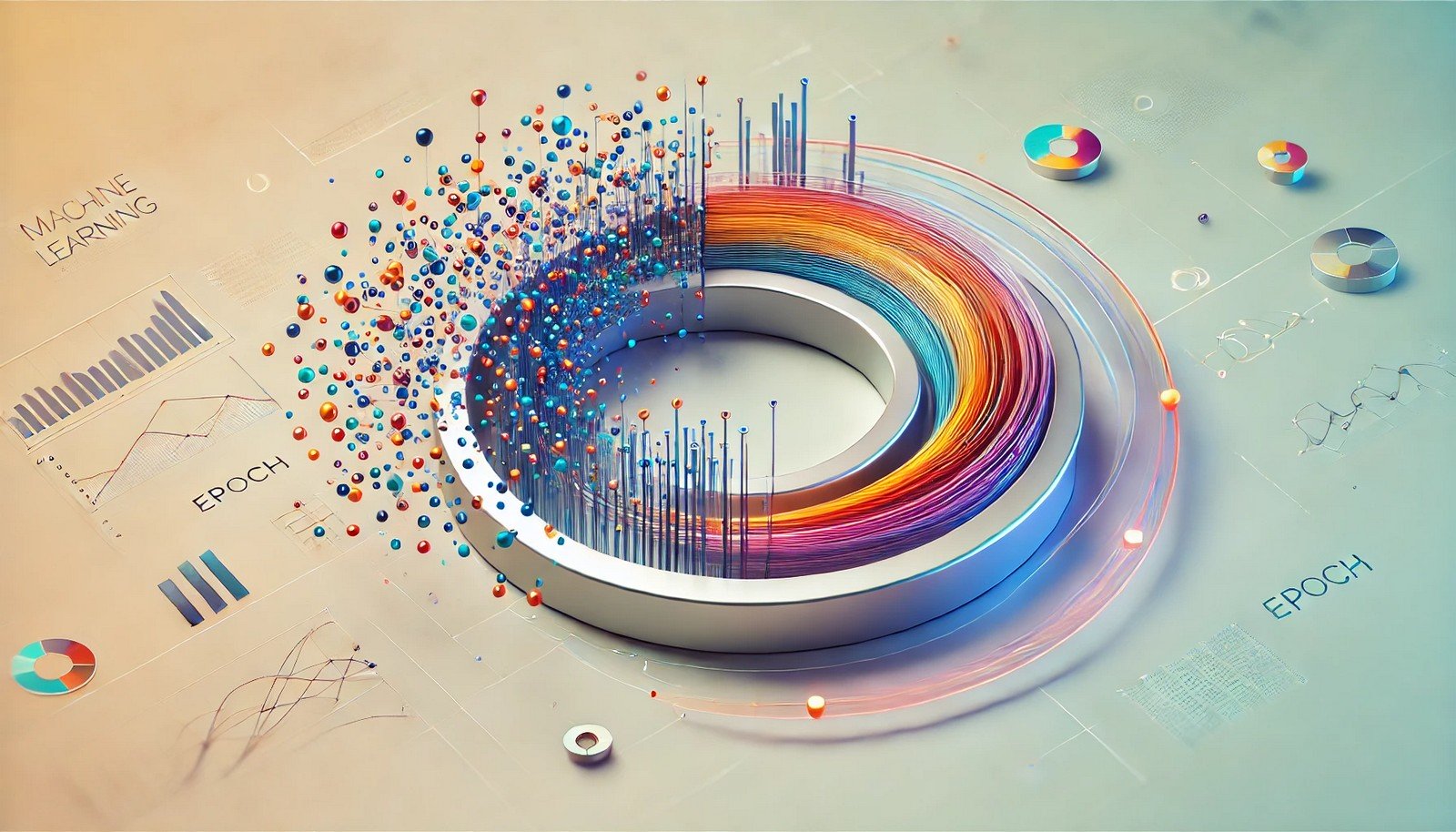Epoch in Artificial Intelligence

Quick Navigation:
- Epoch Definition
- Epoch Explained Easy
- Epoch Origin
- Epoch Etymology
- Epoch Usage Trends
- Epoch Usage
- Epoch Examples in Context
- Epoch FAQ
- Epoch Related Words
Epoch Definition
An epoch in AI and machine learning represents one complete pass through the entire training dataset. This pass allows the learning algorithm to learn patterns, adjust weights, and make necessary adjustments in response to errors, enhancing the model's ability to predict accurately. In deep learning, multiple epochs are often used, with each epoch refining the model based on previous errors until convergence is achieved.
Epoch Explained Easy
Imagine you're practicing for a spelling test. Each time you go through your entire list of words, it's like an "epoch." With each pass, you get better at spelling, noticing mistakes and correcting them. For computers learning from data, an epoch is like going through their "study material" once to understand better.
Epoch Origin
The concept of an epoch originates from time measurement, adapted to represent a unit of learning cycles in AI.
Epoch Etymology
Derived from the Greek word "epochē," meaning a "fixed point in time," it came to signify one cycle of learning or observation in AI.
Epoch Usage Trends
In recent years, the term "epoch" has become widely recognized, especially with the rise of deep learning. Data scientists and machine learning practitioners use it frequently, as optimizing the number of epochs is critical for building efficient models.
Epoch Usage
- Formal/Technical Tagging:
- Deep Learning
- Model Training
- Optimization - Typical Collocations:
- "training for multiple epochs"
- "epoch in neural networks"
- "per-epoch accuracy"
- "number of epochs in training"
Epoch Examples in Context
- In a deep learning project, the model was trained for 50 epochs, improving accuracy with each one.
- Researchers adjusted the number of epochs to avoid overfitting, ensuring the model generalized well on new data.
- Each epoch in training was accompanied by a decrease in error rate, demonstrating effective learning.
Epoch FAQ
- What is an epoch in machine learning?
An epoch is one complete pass through the entire training dataset by the learning algorithm. - Why are multiple epochs used in training?
Multiple epochs help the model learn from errors and improve accuracy with each pass. - How many epochs are ideal for training?
The ideal number depends on the dataset, model, and desired accuracy; common ranges are from 10 to 100 or more. - Can too many epochs lead to overfitting?
Yes, too many epochs can cause the model to memorize data, reducing its generalization capability. - How are epochs related to learning rates?
Learning rates control the extent of adjustments per epoch, balancing speed and accuracy of training. - What happens in an epoch?
The model processes all data once, making predictions, comparing them to correct values, and adjusting weights accordingly. - Do epochs apply to all types of AI models?
Epochs are primarily relevant to iterative models, especially neural networks and deep learning. - What’s the difference between an epoch and an iteration?
An epoch is a complete pass through the data, while an iteration is a batch pass within an epoch. - Why is monitoring epoch performance important?
Monitoring helps avoid overfitting and ensures the model converges appropriately. - Is epoch used outside AI?
The concept exists in time measurement but is uniquely adapted in AI for training cycles.
Epoch Related Words
- Categories/Topics:
- Machine Learning
- Deep Learning
- Model Optimization
Did you know?
The concept of epochs in machine learning is crucial for achieving the right balance between underfitting and overfitting. Techniques like early stopping allow practitioners to halt training once optimal performance is achieved, saving time and resources in deep learning.
PicDictionary.com is an online dictionary in pictures. If you have questions or suggestions, please reach out to us on WhatsApp or Twitter.Authors | Arjun Vishnu | @ArjunAndVishnu

I am Vishnu. I like AI, Linux, Single Board Computers, and Cloud Computing. I create the web & video content, and I also write for popular websites.
My younger brother, Arjun handles image & video editing. Together, we run a YouTube Channel that's focused on reviewing gadgets and explaining technology.



Comments powered by CComment